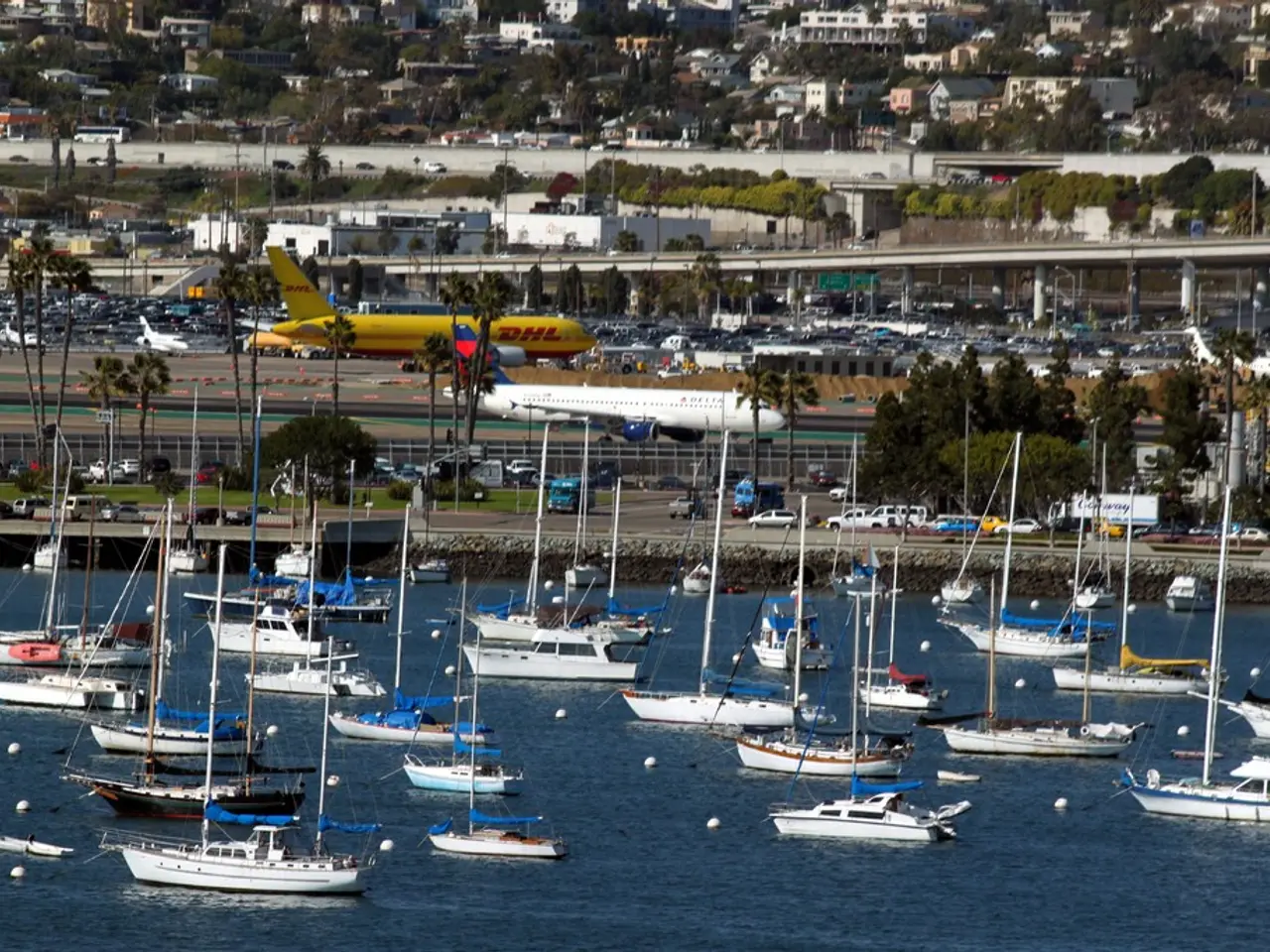Germany's prominent shipyard, TKMS, secures autonomy from external control.
In a significant move for the German shipbuilding industry, Thyssenkrupp's naval shipbuilder, TKMS, is set to go public following shareholders' approval of its spin-off. The new company, TKMS AG & Co. KGaA, is expected to be listed by mid-October.
With a focus on independence, TKMS aims to drive investments in new technologies and markets. As part of Thyssenkrupp's corporate restructuring, the marine division is one of five divisions set to be established independently and open to third-party participation.
However, concerns about the Supervisory Board's composition have arisen. The board, expected to have 10 members, will include 4 independent representatives to ensure some independence. However, Thyssenkrupp AG, the majority shareholder with a 51% stake, will appoint 6 of the 10 members, maintaining strategic control over TKMS. The Krupp Foundation, Thyssenkrupp's largest single shareholder with a 21% stake, is also expected to have a seat on the board.
This structure has raised eyebrows among financial experts and shareholder representatives, who argue for a Supervisory Board primarily composed of independent members to better protect minority shareholder interests. Critics, such as Hendrik Schmidt of the fund company DWS, have described the planned management structure as a "journey under supervision" with the parent company as the "shadow captain on the bridge."
TKMS, the world leader in conventionally powered submarines, has received orders for submarines from Germany, Norway, Israel, and Singapore, contributing to an order backlog of over 18 billion euros. The company, led by CEO Oliver Burkhard, employs around 8,200 people and has shipyard locations in Kiel, Wismar, Hamburg, Bremen, and Emden.
The attractiveness for investors increases due to TKMS' clearly defined business models, which avoid the disadvantages of a conglomerate. The spin-off will give TKMS direct access to the capital market, allowing it to invest in new technologies and markets on its own. The IPO, following the entry into the commercial register, is expected to further bolster TKMS' position in the global shipbuilding industry.
Marc Tüngler of the German Shareholder Association emphasised the potential benefits of a clear focus on business for corporate management and decisions. Despite the concerns surrounding the Supervisory Board, the spin-off of TKMS marks a significant step towards a more independent and investor-friendly marine division within the Thyssenkrupp conglomerate.
The spin-off of TKMS, the marine division of Thyssenkrupp, aims to attract investments from various sectors, including finance and aerospace, as it seeks to drive investments in new technologies and markets. The new company's independence is expected to be maintained, despite Thyssenkrupp AG retaining a strategic control through the Supervisory Board.
The expected addition of representatives from finance and aerospace industries to the Supervisory Board could help TKMS navigate diverse investment opportunities and strengthen its position in the global shipbuilding industry, particularly in areas like advanced submarine technologies and innovative marine solutions.








